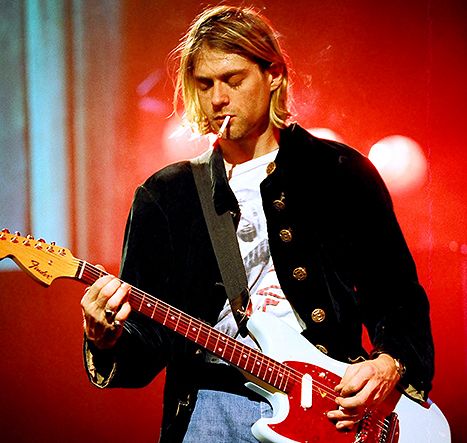24 years post-mortem: My five favorite Nirvana songs

April 5, 2018
Kurt Cobain has been dead for a while now. 24 years to the day to be exact, and since his highly-publicized suicide in 1994 there have been just as many conspiracies as obituaries. Underneath all the loose ends surrounding his death though, one thing is clear in his contribution to the music world as the creative, insightful, and emotionally troubled front man of grunge outfit Nirvana. With every anniversary of Cobain’s passing comes the release of an informative article, a rare bedroom-demo, or an extensive biopic that serves to detail every nuance of his life story. So, with that, I don’t really need to write an article laying tribute to Kurt Cobain’s life and legacy, because the general public has already done so quite enough. Instead, here are five of my favorite Nirvana songs (in no particular order) that I’ve selected purely on behalf of my own personal bias.

Kurt Cobain spent years fiddling with “Sappy,” recording it over and over again between 1987 and 1993. It originally existed as a low-key bedroom acoustic jam, then was reworked into the 1989 album Bleach and subsequent northwest tour as a rousing bonus number. Cobain was never quite happy with it, and it was continued to be re-released and reworked all throughout Nirvana’s career, until it’s final, official release on the 1993 extended LP No Alternatives. For me, it’s the simplistic lyrical message of the struggle to find happiness in a dead-end suburban environment that makes this structurally- versatile track so memorable.
“About A GirlÛ Album: Bleach
For the most part, Nirvana’s 1989 debut album “BleachÛ, is grunge through and through. Sludgy drop-d distortion-heavy guitar riffs serve to outline Cobain and Co.’s disparaged violent lyricism. Perhaps that’s why the upbeat strumming and insightful message of finding and losing love on “About a Girl” is so refreshing. Not one of Nirvana’s more popular tracks until its acoustic debut on MTV’s 1993 special Unplugged, the catchy, poignant lyricism and easy-going melody of the song makes it favorable to music aficionados all around, a favorite among Nirvana fans outside of the grunge listening sphere.
“Lounge ActÛ Album: Nevermind
It shocks a lot of people when I tell them that my favorite track off Nirvana’s most critically acclaimed 1991 record Nevermind is a middle of the album Pixies-inspired song about a guy who feels torn between his girlfriend and his band. A tune that is so disheveled and seemingly lazy in its construction that it doesn’t even have a real ending. But, this probably unfinished disconnect between lyrics and music in “Lounge Act” gives a sporadic punk-rock nuance to an otherwise very polished record, and coupled with Krist Novoselic’s infectious opening bass line this is one of my favorite Nirvana songs.
“Serve the ServantsÛ Album: In Utero
The opening number to Nirvana’s final 1993 studio album In Utero is one that serves to sneer in the faces of the ever-growing teenage fan base the group roped in with their 1991 global phenomenon Nevermind. Cobain serves cynicism well in his lyrics, andthe first one in “Serve the ServantsÛ, “teenage angst has payed off well/ now I’m bored and old” not only sets the tone for this track detailing a reluctance towards success, but for the record In Utero as a whole. This, along with the hypnotic repetition of “Serve the servants, oh no” as a chorus makes this song one of the most lyrically enticing Nirvana numbers to date.
“All ApologiesÛ Album: In Utero
While “All Apologies” at the time of its 1993 release was marketed as an album-ender that discussed the woes of songwriting and stardom, “What else should I be/What else can I writeÛ, when listening to it after Cobain’s death, it’s hard to hear it as anything but a suicide note. “I wish I was like you,” he sings to his huge global audience. “Easily amused.” It ends with him repeating the lines “all in all is all we are” a jarring 13 times, both a justification for suicide and a morbid reminder that at the end of the day, we all, whether that be Cobain, his band, his followers, or humanity itself, are really nothing special. Coupled with one of the most interesting guitar riffs of Cobain’s career the track that served to draw the curtain on Kurt Cobain and Nirvana is just as haunting as it is catchy.














